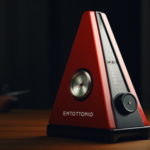Traveling musicians and beginners alike know the struggle of finding the perfect keyboard to take on the road. It's got to be compact, durable, and of course, produce great sound. But with so many options out there, where does one even start?
Enter the world of travel keyboards, a haven for the musically inclined wanderer. They're not just about portability; they're about unleashing creativity wherever you are. Whether you're serenading the sunset on a beach or crafting melodies in a cozy hotel room, the right travel keyboard can make all the difference.
Benefits of a Travel Keyboard
When considering a travel keyboard, understanding its benefits can greatly influence a musician's choice, especially for those just beginning their musical journey. These instruments are designed not only to be portable but also to enhance the playing and learning experience in numerous ways.
First and foremost, travel keyboards are incredibly compact. They are often much smaller than their full-sized counterparts, which makes them ideal for musicians who are always on the move. Whether they're hopping from one gig to another or exploring different cities, a travel keyboard easily fits into luggage or a backpack, eliminating the hassle of transporting large, bulky instruments. This compactness does not come at the cost of functionality. Many models offer a wide range of features, including a variety of voices and rhythms that cater to beginners trying to explore different styles of music.
Another key benefit is their durability. Manufacturers of travel keyboards understand the rigors of the road and often design these instruments to withstand bumps, drops, and the occasional spill. Constructed from robust materials and featuring rugged designs, these keyboards ensure that musicians don’t have to worry about the wear and tear of travel affecting their instrument's performance. This durability makes them a reliable option for beginners who may not yet be accustomed to handling music equipment with care.
Sound quality is an aspect where travel keyboards truly shine. Despite their smaller size, many of these keyboards produce exceptional sound. This is vital for beginners who are developing their ear and learning to distinguish between tones and pitches. High-quality sound output ensures that new learners can practice effectively, making music that's pleasing to the ear and encourages them to keep playing.
Moreover, travel keyboards often come packed with learning features tailored for beginners. From built-in lessons to light-up keys that guide finger placement, these instruments are designed to facilitate the learning process. They provide an accessible way for novices to start their musical education, making it easier for them to grasp basic concepts and advance their skills.
The flexibility and convenience offered by travel keyboards also foster creativity and spontaneity. Being able to play music whenever and wherever can be incredibly liberating for a musician. Beginners find that having an instrument they can take wherever they go allows them to practice more frequently, experiment with composing their own music, and even perform impromptu sessions that boost their confidence and performance skills.
Factors to Consider when Choosing a Travel Keyboard

When it comes to selecting the perfect travel keyboard for beginners, several factors come into play. Understanding what to look for not only simplifies the purchasing decision but also ensures that the musician gets an instrument that suits their needs and lifestyle.
Size and Weight
Firstly, portability is key. The size and weight of the keyboard are crucial factors to consider. Beginners should aim for a keyboard that's lightweight and compact enough to carry around easily. These keyboards should snugly fit into luggage or a backpack, making them ideal companions for travelers.
Key Count and Action
Another vital aspect is the key count and action. Most travel keyboards come with a reduced number of keys, commonly ranging from 25 to 61 keys. While a lower key count enhances portability, it's important to ensure that the keyboard still offers a sufficient range for practice and performance. The action of the keys, whether they're weighted or semi-weighted, affects the playability and feel, which is essential for beginners trying to develop their technique.
Connectivity Options
The next consideration is connectivity. A good travel keyboard should offer a variety of connectivity options, such as USB, MIDI out, and Bluetooth. This flexibility allows beginners to connect their keyboard to computers, tablets, or smartphones for expanded functionality, such as using learning apps or recording software.
Durability
Since travel keyboards are designed to be on the move, durability is also a significant factor. Look for keyboards made with sturdy materials capable of withstanding the rigors of travel. Features like a solid build quality and protective cases or covers add an extra layer of security against bumps and impacts.
Sound Quality and Features
Despite their compact size, travel keyboards mustn't compromise on sound quality. Beginners need clear, crisp sound to develop their musical ear and skill effectively. Furthermore, keyboards with a variety of built-in sounds, rhythms, and learning tools can greatly enhance the learning experience. Tutoring functions, playback options, and recording capabilities are invaluable for beginners to practice and monitor their progress.
Battery Life
Lastly, battery life becomes a consideration for those long journeys or practice sessions away from power sources. Keyboards that offer long battery life or the option to use rechargeable batteries provide musicians with the freedom to play whenever and wherever they choose.
Top Features to Look for in a Travel Keyboard

When embarking on the journey of finding the perfect travel keyboard for beginners, there are several key features that can make the experience more enjoyable and productive. Recognizing these characteristics can significantly enhance a newbie's learning curve and overall satisfaction.
Size and Weight: The essence of a travel keyboard is its portability. Beginners should seek out instruments that are both lightweight and compact, ensuring they can easily carry their keyboard wherever they go. A lighter keyboard makes for effortless transportation, be it to a friend's house or a music class.
Key Count and Action: The number of keys on a keyboard influences not only the range of music that can be played but also the space required for the instrument. Most travel keyboards have between 25 to 61 keys, with 49 keys being a popular middle ground for beginners. Additionally, the action of the keys, whether they are weighted or unweighted, affects the tactile experience and can aid in the transition to more traditional pianos in the future.
Connectivity Options: In today's digital age, connectivity is a critical feature. A travel keyboard with USB and Bluetooth capabilities can facilitate a more interactive learning experience. It allows beginners to connect to apps and software that offer tutorials, sheet music, and even recording functions.
Durability: Travel implies movement, and movement can lead to wear and tear. A good travel keyboard must be built to withstand the rigors of transport. Durable materials and sturdy construction are must-have features to ensure the keyboard can handle being moved around frequently without sustaining damage.
Sound Quality and Features: Despite the compact size, the sound quality shouldn't be compromised. Beginners will benefit from a keyboard that offers a range of sounds and effects, as this allows for exploration and creativity. Additionally, built-in learning features such as light-up keys or integrated lesson functions can greatly assist in the learning process.
Battery Life: Since travel keyboards are designed for mobility, they often rely on batteries for power. Long battery life is essential to avoid frequent interruptions. This ensures that learners can practice for extended periods without the need for constant recharging or battery replacements.
Best Travel Keyboards for Beginners

When embarking on a musical journey, the right equipment can make all the difference. For beginners seeking portability and quality, certain travel keyboards stand out for their exceptional features and user-friendly designs. Here, we explore some top recommendations that are perfect for those starting their keyboard learning adventure on the go.
Yamaha PSR-E263 Portable Keyboard
Yamaha is renowned for crafting instruments that blend quality with user-friendliness, and the PSR-E263 is no exception. It's an ideal choice for beginners, offering a comprehensive set of features:
- 61 keys, perfect for learning and practicing.
- A wide variety of 400 voices and 130 styles to explore different genres.
- Compact and lightweight, making it easy to carry around.
- Y.E.S. (Yamaha Education Suite) helps beginners learn with built-in lessons.
Despite its wealth of features, it remains affordable and accessible, making it a top pick for new musicians.
Casio CT-S200WE Portable Keyboard
The Casio CT-S200WE stands out for its striking design and practicality:
- It boasts 61 keys and is equipped with 400 tones and 77 rhythms, offering extensive versatility.
- USB and aux-in connectivity enhances the learning experience by allowing beginners to play along with their favorite songs.
- It's incredibly lightweight, with a built-in carry handle for ease of transportation.
- Features a Dance Music Mode, adding a fun, interactive layer to practice sessions.
This model is designed for those who value portability and fun in their musical instrument.
Roland GO:KEYS GO-61K
Roland's GO:KEYS GO-61K is perfect for creativity on the move:
- With 61 keys, this keyboard uses Bluetooth connectivity to interact with smartphone apps, unlocking a world of digital music composition.
- Its Loop Mix function allows beginners to build songs by simply playing notes, making music creation accessible to everyone.
- The compact design and battery-operated power source ensure it can be played anywhere.
- Delivers high-quality sound that Roland is known for, making every session enjoyable.
This keyboard is aimed at beginners who are eager to explore music composition alongside learning to play.
Conclusion
Choosing the right travel keyboard marks the beginning of an exciting musical journey for beginners. Whether it's the Yamaha PSR-E263 with its comprehensive learning suite, the Casio CT-S200WE designed for easy connectivity and fun music creation, or the Roland GO:KEYS GO-61K that opens up a world of composition through its innovative features, there's something for everyone. Each of these keyboards shines in making learning both accessible and engaging, ensuring that beginners not only pick up the basics but also enjoy the process. They're perfect companions for musical exploration, wherever the road takes them.
Harlan Kilstein began playing piano during covid with no piano background at all. He taught himself how to play learning what to do and what not to do.
Today he's an advanced intermediate player and can help you grow in your skills because he learned all this on his own.








